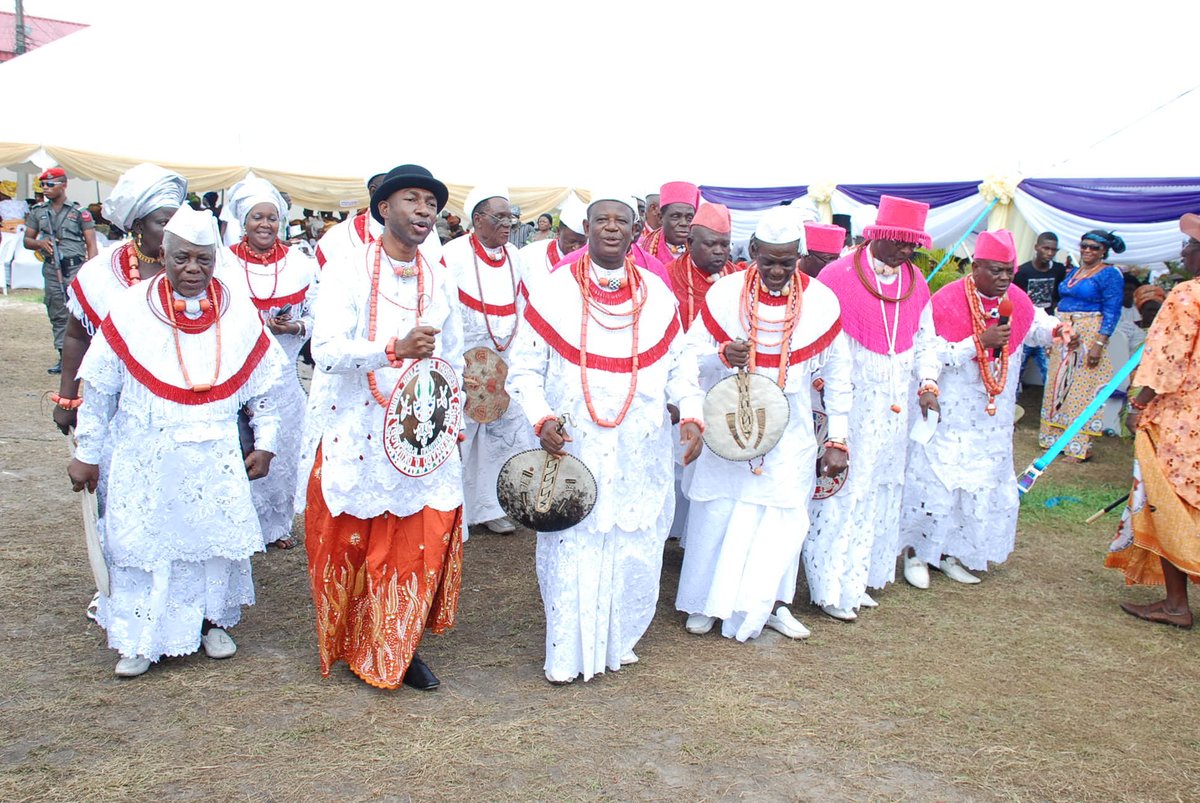
The Urhobo people of Southern Nigeria believe that nobody dies a natural death under the age of 60 years. Such deaths must have been caused by witches and wizards, etc. Hence, the oracle determines the type of traditional burial the person gets.
#Thread
#Thread

People who died without children are buried, but with no festivities and other rituals. The reason is that they do not have children who will continue to have their names and perform ancestral worship.
A good young person who died is buried but without death festivities and rituals. However, weapons, such as cutlasses, knives, broken bottles, etc., are put in the coffin to help him/her to fight and avenge his/her death.
Evil people who died an abominable death are not given a "good burial". They are thrown into the evil forest to be eaten by wild animals. This is done to prevent the reincarnation of their spirit. #HistoryVille
• • •
Missing some Tweet in this thread? You can try to
force a refresh








